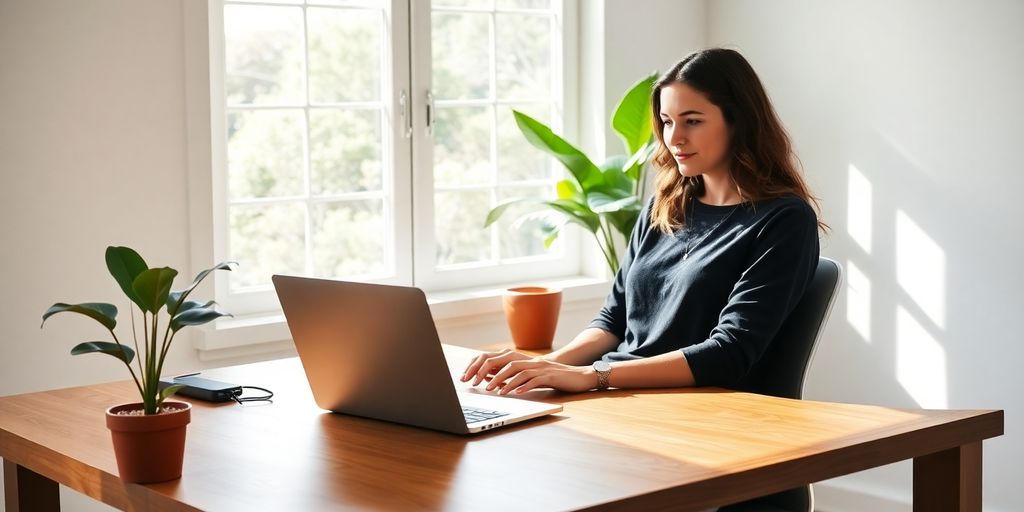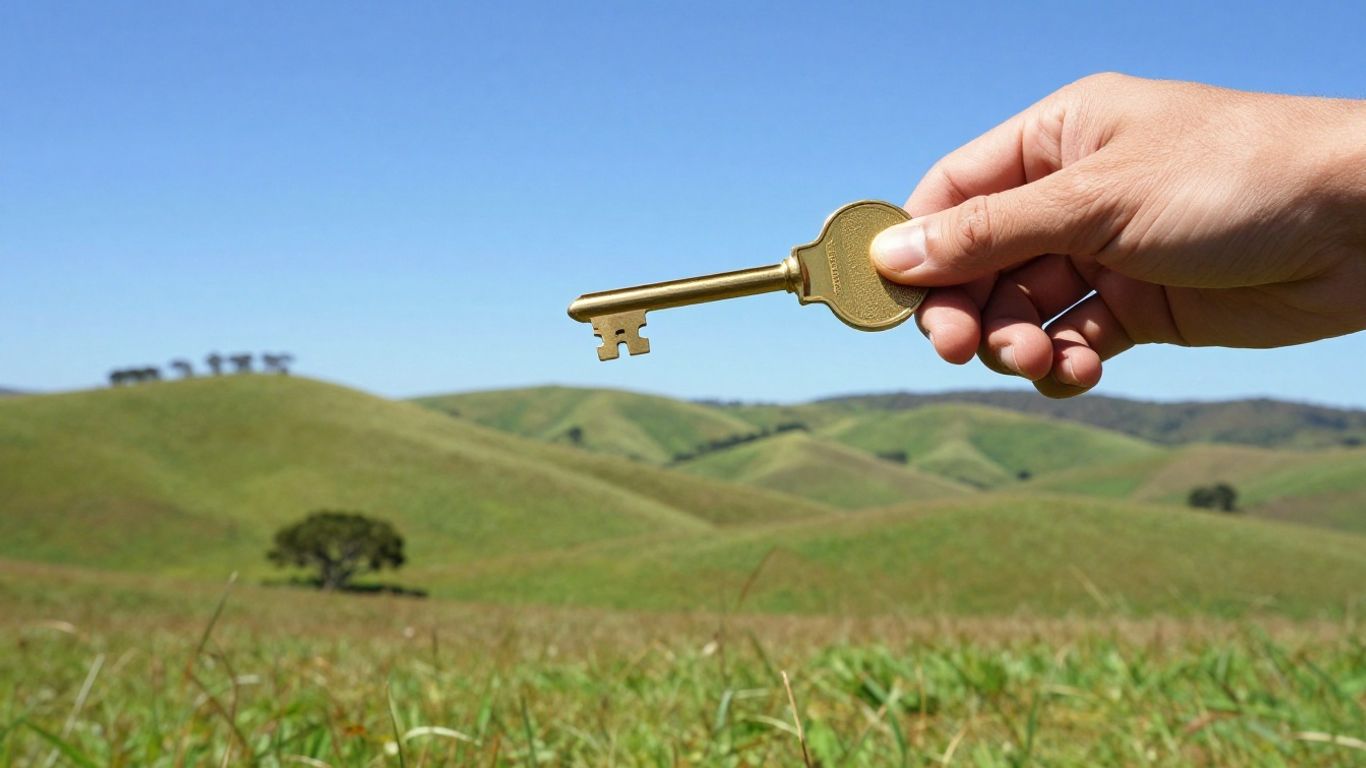G’day, future business owners! Thinking about kicking off something new in Australia in 2025? You’ve landed in the right spot. This article is your guide, helping you find some great business ideas from home Australia. We’ll talk about what people really want, how to get your stuff out there online, and some smart ways to get your venture off the ground. No worries, we’ll keep it simple, so you can get cracking on your dream business.
Key Takeaways
- Chat with your customers a lot. Their thoughts are like gold, showing you what to do better or what new things to offer.
- Always be on the lookout for new tech. Things like AI or virtual reality can really shake up your business and keep you ahead.
- Think about selling your stuff overseas. There might be a big market out there just waiting for what you’ve got.
- Keep an eye on the rules and laws for businesses. They change, and you need to change with them to stay in the game.
- Don’t be afraid to try new things and get creative. Sometimes the best ideas come from just messing around and thinking outside the box.
1. Handcrafted Goods
Reckon you’ve got the skills to whip up some awesome stuff with your own two hands? Got a real eye for detail and can create things people actually wanna buy? Well, mate, you might be onto a winner. Selling handcrafted goods online is absolutely booming here in Oz, and there’s plenty of room for Aussies with a bit of imagination and a good work ethic.
The real trick is to find your own special area and make sure your creations really stand out from the crowd. What makes your stuff different? Is it the materials you use, your unique style, or maybe the story behind each piece? That’s what’ll grab people’s attention.
Here’s a few ideas to get you started:
- Jewellery: Think unique designs, using sustainable materials, or even personalised pieces. You could even look into using a CNC machine to help you out.
- Home Decor: Things like candles, ceramics, textile art, or even custom furniture are always popular.
- Personal Accessories: Handbags, wallets, or even bespoke clothing can be a great seller.
It’s not just about making something pretty; it’s about building a brand that tells a story. People connect with authenticity, and that’s what handmade goods can offer. Focus on quality, good photos, and clear descriptions, and you’ll be set.
Once you’ve got your product sorted, you’ll need a place to sell it. You could build your own online store, or you might want to think about selling on Etsy, which is known for handmade goods and one-of-a-kind products. Just remember it can be hard to scale up using that platform alone.
2. AI
AI is fair dinkum changing heaps of industries, and Australia’s no different. It’s not just about robots taking over, but more about smart systems that help businesses run better. Think about AI customer service, data stuff, and even personalised marketing. The possibilities are pretty wild, mate.
AI is set to change how businesses operate, giving opportunities for new ideas and better efficiency.
The Aussie IT scene is expected to grow a fair bit in the next few years. More businesses are using things like cloud stuff, big data, and the Internet of Things. They’re putting money into tech to work better, save money, and get ahead.
Here are a few things to think about:
- Automation is your mate: Look at ways to automate the boring stuff. This frees you up to focus on growing your business and AI applications.
- Data is gold: Collect data to understand your customers better. What are they buying? What are they saying online? Use this info to improve things.
- Cybersecurity is important: With everything online, protecting your data is important. Don’t skimp on cybersecurity.
3. Virtual Reality
Virtual Reality (VR) isn’t just for gaming anymore, mate. It’s popping up in all sorts of places, from training programmes to virtual property tours. The tech’s getting easier to use, and Aussies are starting to see what it can do. VR offers experiences that can change how we learn, work, and interact.
VR’s not just a gimmick; it can fix real problems. It’s about finding those problems and making VR solutions that are both good and interesting.
Here are a few ways VR is changing things:
- Training and Education: Imagine surgeons practising tricky operations in a safe virtual space.
- Real Estate: Virtual tours are getting popular, letting buyers check out properties from anywhere. startup business ideas are booming.
- Tourism: See places before you even book a flight.
VR development needs both tech skills and a creative mind. It’s not just about coding; it’s about making experiences that are easy to use, interesting, and helpful.
4. Blockchain
Blockchain, eh? It’s not just about Bitcoin anymore, mate. It’s popping up everywhere, and there are some bonza business ideas brewing around it for 2025. Think secure transactions, transparent supply chains, and new ways to verify stuff online. It’s a bit complex, but once you get your head around it, the opportunities are massive.
Blockchain tech is still pretty new, but it’s got the potential to change how we do business. It’s all about trust and security, which are big deals in today’s world. If you can find a way to use blockchain to solve a real problem, you’re onto a winner.
Here’s a few things to think about:
- Decentralised Finance (DeFi): Think lending, borrowing, and trading without the banks. There’s a growing demand for crypto remittance bridge and alternative financial services.
- Supply Chain Tracking: Know where your products are coming from and going to. This is huge for ethical sourcing and proving authenticity.
- Secure Data Storage: Keep your data safe from hackers. Blockchain can provide a more secure way to store important information.
- Non-Fungible Tokens (NFTs): It’s not just about digital art. NFTs can be used for things like verifying ownership of assets or creating unique digital identities.
It’s worth having a look at how blockchain for more secure transactions can be used in your business.
5. Augmented Reality

Augmented Reality (AR) is no longer just a futuristic concept; it’s becoming a practical tool for businesses right here in Australia. Think about how it can change the way customers interact with products and services. AR overlays digital information onto the real world, creating engaging and interactive experiences.
Here are a few ways AR is shaping up for Aussie businesses:
- Virtual Try-Ons: Imagine customers being able to virtually ‘try on’ clothes or makeup before buying online. This reduces returns and boosts customer satisfaction. AR product demos are a game changer.
- Interactive Training: AR can provide step-by-step instructions overlaid onto real-world equipment, making training more effective and less costly.
- Enhanced Product Visualisation: Customers can use their smartphones to see how furniture would look in their homes before purchasing, improving their confidence in the purchase.
AR development requires a mix of technical know-how and creative thinking. It’s not just about the code; it’s about designing experiences that are easy to use, fun, and actually helpful.
AR isn’t just a gimmick; it’s a tool that can solve real problems. It’s about finding those problems and creating AR solutions that are both effective and engaging. The future of AR/VR is bright, especially for businesses willing to embrace it.
6. Social Media

Social media, eh? It’s not just for sharing your brekkie anymore. It’s a proper goldmine for business ideas if you know where to look. Everyone’s online these days, so why not tap into that?
Think about what people are actually doing on social media and how you can provide something they need or want. It’s all about finding that sweet spot.
Here’s a few things to consider:
- Influencer Marketing Agency: Businesses are always looking for influencers. Help them find the right ones and manage campaigns.
- Social Media Management: So many small businesses are clueless about social media. Offer to run their accounts for them. Content creation, scheduling, engagement – the whole shebang.
- Online Community Building: Create a niche community around a specific interest. Monetise it through memberships, events, or even just good old advertising.
Social media is constantly changing, so you’ll need to stay on top of the latest trends and algorithms. It can be a bit of a headache, but the rewards can be worth it if you play your cards right.
Maybe you could even start a podcast about online business ideas and promote it on social media. Just a thought!
7. Online Marketplaces
Online marketplaces are booming, mate! They’re not just for big businesses anymore. Anyone can set up shop and start selling their stuff. It’s a ripper way to reach a huge audience without the overheads of a physical store.
Selling on Popular Online Marketplaces
Getting your products onto popular online marketplaces is a smart move for any Aussie business. Places like eBay Australia, Amazon Australia, and even local craft sites can put your stuff in front of heaps of potential customers you might not reach otherwise. It’s like having a shopfront in a massive, busy shopping centre, but without the huge rent.
Here’s why it works:
- Built-in audience: These platforms already have millions of users looking to buy things.
- Easy setup: Most marketplaces make it pretty straightforward to list your products.
- Trust factor: Customers often feel more secure buying from established platforms.
- Reduced marketing effort: The marketplace does a lot of the heavy lifting for getting eyes on your products.
It’s a great way to test the waters with new products or just get your brand out there. Just remember to factor in their fees when you’re pricing your goods.
Mastering E-commerce for Australian Consumers
Mastering e-commerce for Australian consumers means understanding what makes them tick online. It’s not just about having a website; it’s about making the whole buying process smooth and easy. Think about things like clear product descriptions, good photos, and a simple checkout. Australians appreciate transparency, so be upfront about shipping costs and delivery times. Offering local payment options, like Afterpay or Zip Pay, can also make a big difference. Consider these points for your online store:
- Mobile-friendly design: Most people browse and buy on their phones these days.
- Fast loading times: Nobody likes waiting for a slow website.
- Clear return policies: This builds trust with your customers.
- Local customer support: Being able to talk to someone in Australia if there’s a problem is a big plus.
Building a Strong Online Presence
Having a good online presence isn’t just a ‘nice to have’ anymore; it’s absolutely essential. People are looking for everything online these days, from local tradies to unique handmade goods. Your digital shopfront needs to be as inviting and functional as any physical one. This means more than just a basic website. You need to be where your customers are, whether that’s on social media, through search engines, or on specific online marketplaces. For example, if you’re selling products, getting your stuff listed on popular Australian platforms can make a huge difference. Australian business opportunities are often found online.
Capitalising on Niche Markets
Don’t try to be everything to everyone. Find a niche market and become the go-to place for that specific thing. Think about what you’re passionate about and see if there’s a gap in the market. For example, maybe you could sell eco-friendly baby clothes or handmade dog accessories. The more specific you are, the easier it is to attract loyal customers.
Selling Overseas
Why limit yourself to Australia? Selling overseas can open up a whole new world of opportunities. There are a few things to consider, like shipping costs, customs regulations, and different payment methods. PayPal is a good start, but you might need to look into other options as well.
Selling overseas isn’t just about making more money; it’s about building a brand that’s recognised around the world. It can open up new opportunities, attract new talent, and give your business a real competitive edge. Plus, it’s a great way to show off what Australia has to offer.
Consider these markets:
| Market | Potential Interest | Key Considerations |
|---|---|---|
| New Zealand | Similar culture, close proximity | Shipping costs, customs |
| Southeast Asia | Growing middle class, demand for quality | Cultural differences, logistics |
| Europe | Demand for unique products | Language barriers, regulations |
8. Local Forums
Alright, so you’re thinking about starting a business from home, eh? Don’t underestimate the power of local forums. These online spaces, often overlooked, can be goldmines for ideas and early customers. Think of them as your virtual town square, where you can gauge interest, get feedback, and even find collaborators.
Local forums are a great way to connect with your community and test your business ideas.
I reckon you should check out forums dedicated to specific interests or hobbies. For example, if you’re into crafting, find a local crafting forum. Or, if you’re a tech whiz, look for a forum about tech in your area. These niche communities are often full of people looking for specific products or services. You can also find general community forums where people discuss local issues and events. These are great for getting a feel for what people need in your area. You might even stumble upon a gap in the market that no one else has noticed.
Here’s a few things you can do on local forums:
- Ask for feedback on your business idea.
- Promote your products or services (but don’t be too spammy!).
- Find potential customers or collaborators.
- Learn about local events and opportunities.
Using local forums is like having a focus group at your fingertips. You can get real-time feedback from potential customers without spending a fortune on market research. Plus, you’re building relationships with people in your community, which can be invaluable in the long run.
Don’t just lurk! Get involved in the conversations, offer helpful advice, and build a reputation as a knowledgeable and trustworthy member of the community. This will make people more likely to support your business when you launch. You can even find some Sydney networking groups to help you get started.
9. Review Platforms
Alright, so you reckon you can make a quid from online reviews? Well, cobber, you might be onto something. Everyone checks reviews before buying stuff these days, right? So, there’s definitely a market for platforms that help businesses get seen and help punters make informed choices. It’s all about trust, mate.
Setting up a review platform can be a solid earner if you do it right. You’ve gotta think about what makes your platform different. Is it niche-specific? Does it offer unique features? Or is it just another run-of-the-mill site?
Here’s a few things to consider:
- Verification: How do you make sure the reviews are legit? Fake reviews are a massive problem, so you need a system to weed them out.
- User Experience: Is your site easy to use? No one wants to muck around with a clunky website. Keep it simple and intuitive.
- Monetisation: How are you going to make money? Advertising? Premium listings? Subscription fees? You need a plan.
Building a successful review platform isn’t a walk in the park. It takes time, effort, and a bit of savvy. But if you’re willing to put in the hard yards, it could be a ripper of a business. Just remember to focus on quality, transparency, and user experience, and you’ll be well on your way.
Think about the local angle too. Maybe a local business directory focusing on Aussie businesses? That could be a winner.
10. Feedback Forms
Alright, so you’ve got your business idea humming along. But how do you really know what your customers reckon? That’s where feedback forms come in, mate. They’re not just some fancy add-on; they’re your direct line to understanding what’s working and what’s, well, not.
Using feedback forms effectively can seriously boost your business by showing you where to improve.
Think about it – you can get insights you’d never think of yourself. Plus, customers feel valued when you ask for their opinion. It’s a win-win, really.
Here’s a few things to keep in mind:
- Keep it short and sweet. No one wants to spend half an hour filling out a form.
- Ask specific questions. Vague questions get vague answers.
- Make it easy to access. Stick it on your website, send it in an email, whatever works.
Getting feedback is like having a mate give you honest advice. It might sting a bit sometimes, but it’s always for the best in the long run. Ignoring it is like driving with your eyes closed – you’re bound to crash eventually.
Now, you might be thinking, "Where do I even start?" Well, there are heaps of online tools that make creating feedback forms a piece of cake. Google Forms, SurveyMonkey, Typeform – take your pick. They usually have free options to get you started, too. You can even use online marketplaces to find someone to design a custom form for you.
And don’t just collect the feedback and leave it at that! Actually use it. If everyone’s complaining about the same thing, fix it! Show your customers you’re listening, and they’ll keep coming back.
Here’s a quick look at some popular feedback methods:
| Method | Pros | Cons |
|---|---|---|
| Online Forms | Easy to distribute, data is automatically collected and organised. | Can feel impersonal, response rates might be lower. |
| Email Surveys | Can target specific customers, allows for more detailed questions. | Can be seen as spam, requires a good email list. |
| In-Person | Allows for follow-up questions, builds rapport. | Time-consuming, can be biassed by the interviewer. |
Wrapping It Up
So, that’s the lowdown on finding those good business ideas in Australia for 2025. It’s really about looking around, seeing what people need, and then figuring out how you can help. We talked about everything from selling stuff you make yourself to getting your head around new tech. The main thing is to keep your eyes open, be ready to try new things, and don’t be scared to change direction if something isn’t working. Australia’s got heaps of chances for folks who are keen to give it a go, so get out there and make something happen!
Frequently Asked Questions
What are some popular sustainable business ideas in Australia?
Heaps of things! Think about businesses that help the environment, like selling stuff made from recycled materials or setting up solar panels. People are really keen on being green these days.
Is selling handcrafted goods online a good idea for 2025?
Definitely! With more people shopping online, selling your unique, handmade items like jewellery, art, or even custom-made furniture can be a real winner. There’s a big market for things with a personal touch.
How important are new technologies like AI and VR for starting a business?
Absolutely. Things like AI (Artificial Intelligence) and VR (Virtual Reality) are changing how we do everything. Learning about them and figuring out how they can help your business can give you a massive leg up.
Why is market research so important before starting a business?
It’s super important! You need to know what people want and what’s already out there. This helps you make smart choices and avoid wasting time and money on something nobody wants.
What does ‘financial sustainability’ mean for a new business?
It means being smart with your money and making sure your business can keep going for a long time. This includes things like managing your cash flow, not spending too much, and having a plan for the future.
How crucial is an online presence for an Australian business in 2025?
It’s about making sure your business is seen and heard in the right places online. This means having a good website, being active on social media, and making it easy for people to find you when they search for what you offer.





